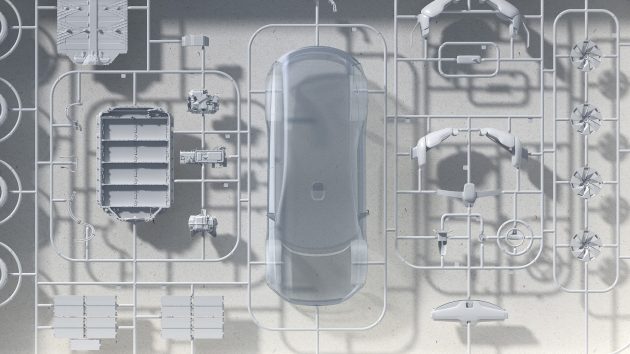
Volvo Cars presents electric transition plan at their Cars Tech Moment event
by CM Staff

Volvo Cars wants to manufacture vehicles that more than double the real world driving range compared to its current electric cars.

Volvo Cars Tech Moment (CNW Group/Volvo Car Canada Ltd.)
RICHMOND HILL — Volvo Cars laid out its future technology roadmap on June 30th during the Volvo Cars Tech Moment, an online technology event illustrating the transition towards becoming a fully electric premium car company in the fast-growing premium electric segment by 2030.
During the live event from Gothenburg, Sweden, the company gave audiences a first glimpse of the technologies that underpin Volvo Cars’ future, in which all next generation cars will be purely electric. Representatives from Google, Luminar, Northvolt and NVIDIA also contributed at the event.
As part of the event, the company also unveiled its future approach to infotainment and a concept car that visualised its technology roadmap and that shows an insight into the future of design in the pure-electric era.
“As we transition to becoming a pure electric premium car company by 2030, we are committed to creating the best cars in our 94-year history,” said Håkan Samuelsson, chief executive. “This is an exciting time in our development and we will deliver on growing customer demand for pure electric cars that offer seamless connectivity, industry-leading safety standards and advanced autonomous drive.”
Volvo Cars wants to manufacture vehicles that more than double the real world driving range compared to its current electric cars, and that allow for much faster battery charging and offer lower costs for owning and charging alike. By the middle of this decade it aims to sell 1.2 million cars globally, with at least half being fully electric cars.
Together with a switch to core computing inside its cars through NVIDIA technology, Volvo Cars will also move its software development in-house and focus on shorter development cycles, reflecting the growing role of software as a differentiator for the car of the future and a driver of profitable growth.
The next generation of Volvo models will also try and set new standards for safety. It will make its future cars hardware-ready for autonomous drive by including LiDAR sensors from Luminar as standard.
Volvo Cars will also continue its collaboration with Google, taking their approach to infotainment and connectivity to the next level. A new infotainment system will focus on offering a simple and safe experience, as well as integration between Volvo Cars and Google ecosystems.